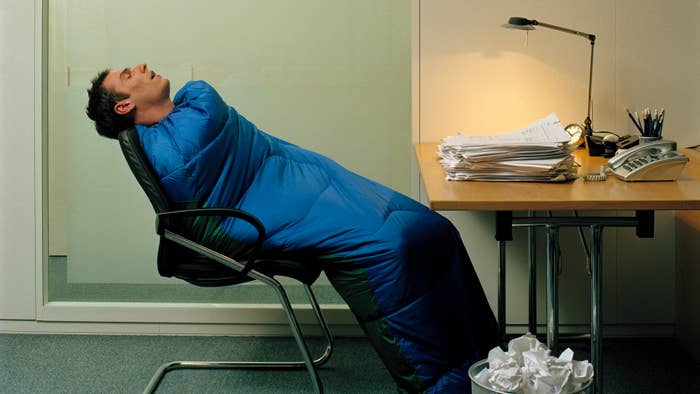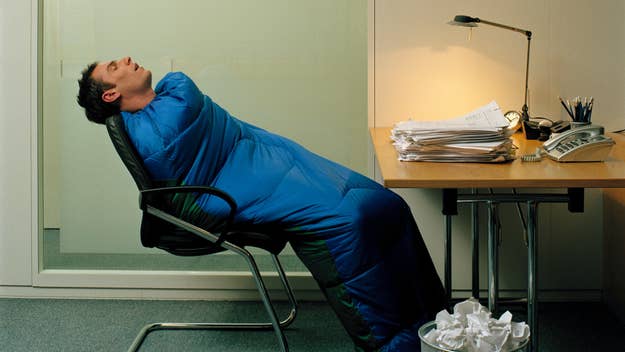
Nap enthusiasts have bagged yet another win, as a recent study points to “a modest causal link” between regular napping and larger brain volume.
Per a paper published this week in the National Sleep Foundation’s Sleep Health journal, a link between habitual daytime napping and larger total brain volume is suggested in the findings of a study using data from more than 35,000 people between the ages of 40 and 69.
Brain bigness is key, of course, as we get older. In fact, brain volume has been shown to shrink with age, thus contributing to a slew of issues that only add to the general bleakness of human existence.
The newly released study, however, shows that sneaking in regular naps could help our brains stay larger for a longer period of time. Speaking with BBC News, Dr. Victoria Garfield—one of several researchers behind the widely reported paper—praised the paper’s central revelation as “quite exciting” for everyone.
“We are suggesting that everybody could potentially experience some benefit from napping," Dr. Garfield told the publication.
As for the specifics, key findings include that daytime napping was found to be associated with 15.8 cubic centimeters (or 0.9 cubic inches) in additional brain volume. Furthermore, this difference in volume is billed in the paper as the rough equivalent of between 2.6 and up to 6.5 years of aging.
In an ideal society, we could take stats like this and immediately implement them into our daily lives. But in the American employment infrastructure, at least, even basic lunch breaks are limited to barely enough time for any actual relaxing—and that's assuming one even has the luxury of a lunch break at all. Many Americans are tasked with running themselves into the ground, often for their entire lives, while leisure-clutching billionaires and spineless CEOs benefit from our hard work.
If sleep is also a luxury, what does that say about our waking reality?

